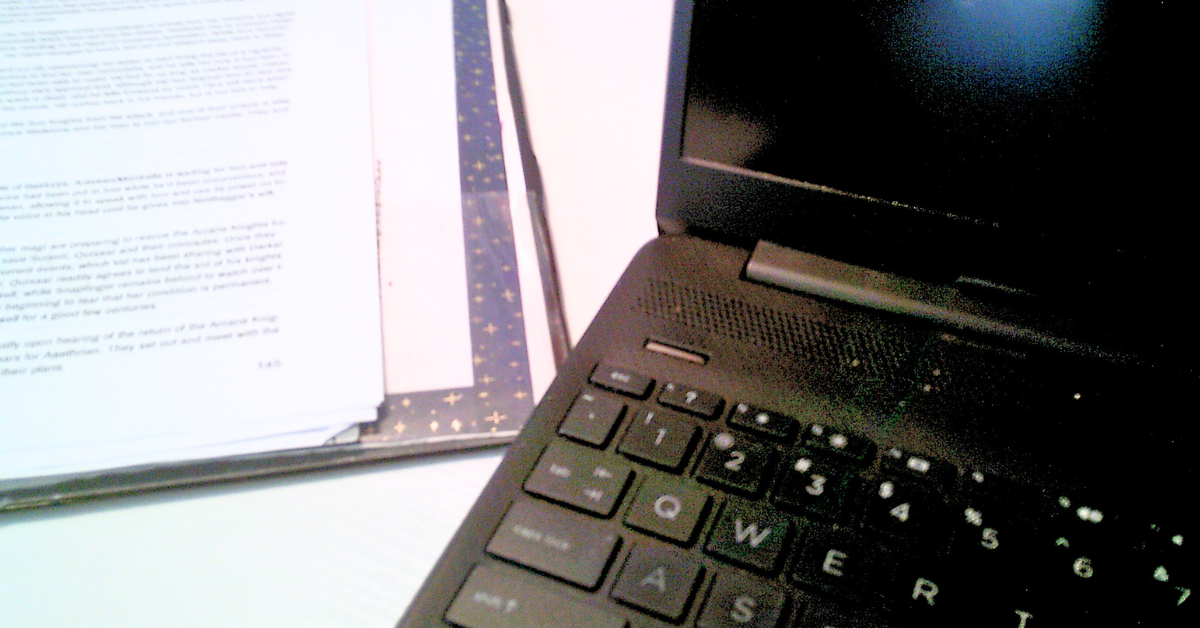Intro
There’s lots of writing software out there, some free, some paid for, and some that are somewhere in between. Some are packed with a million different features that can help you super customize your workflow and let you have everything you need all in one place, while others are more simple and less finicky, but have less functionality.
With so many options out there, I thought that some people might be interested in learning what I use for my own fiction writing projects. And I’m going to go right out and say that I don’t use anything fancy; everything I use is free and leans more towards the simple side of things, and I have yet to find a reason to try to change things up.
So, whether you’re just curious or are hoping to find some good, beginner-friendly writing software to try out yourself, you’re in the right place.
Drafting Software
I just go plain and simple with the software that I use for my actual drafting. I’ve been using Google Docs ever since I wrote my first novel as a teen, and it can do everything I need it to do, from basic formatting to note-taking.
Google Docs is definitely one of the most basic softwares out there, and that’s one of its charms, in my opinion. It doesn’t allow much customization, which I think can be a major turn off for some writers, but I’ve actually found that to be a good thing, given my tendency to procrastinate getting actual work done by doing the all-important task of reorganizing and rearranging things for no apparent reason when I’m supposed to be working on something.
But, that’s not to say that you can’t do any organization at all. I keep my projects organized in Google Drive folders that can easily be accessed in Docs as well. And some of those folders have more folders inside of them, which have even more folders inside of them, and so on. That’s really all I need to keep myself organized and help myself find things easier.
Another nice thing about Google Docs is that, as long as I’m logged into Google, I can easily get to all of my projects on any device, which is great for if I’m writing on the go and don’t want to lug my laptop around. The only problem with this that I’ve had is that sometimes, if the doc gets too long (which it always does eventually, in my case), it either takes a ridiculously long time to load or it just doesn’t load at all on tablet devices. Fortunately, I’ve been able to work around this by just making a new doc while I’m on my tablet and writing in that. Then, when I’m on my computer later, the new doc will show up in my Google Docs there, and I’ll be able to just copy-and-paste what I wrote into the main novel doc.
Over all, Google Docs has served me well, and I don’t see myself switching it up any time soon.
Outlining & Planning Software
Up until the last couple of years, I actually did my outlining in Google Docs too, and it worked pretty well. The only reason why I stopped was because I wanted to have something a little more…dynamic, shall we say. And I wanted to have my outlines in the same place as all of my other novel-planning notes and stuff.
So, nowadays, I use Notion for all of my outlining and more generalized note taking. It’s where I keep my character sheets, world-building materials, and is also where I track my word counts and goals. Everything except for the actual writing itself, I do in Notion.
In Notion, I set up separate pages for each project, which I basically use as a homepage where I can navigate to different, more specific sections, which I make by using sub-pages. The exact things that I need to devote a section to are different for each project, but I almost always have sections for the outline, the character bios (which is usually a sub-page with a bunch of separate sub-pages in it, one for each character), the notes, and the brainstorms. If the story’s set in a world that I made up, I also usually have a section devoted to the world itself, where I keep things like the languages and calendars that are used on that world, along with any background lore that I have.
It’s a little…intricate, but it’s definitely my favorite way of organizing all of the more technical sort of stuff for my projects that I’ve tried so far.
And, like Google Docs, I can use Notion on mobile devices, making it easy to quickly jot stuff down if I think of something and don’t have my laptop handy. I’ve saved loads of ideas from being forgotten that way, believe me.
Outro
All right, that’s all for this week’s writing post. I hope you found that interesting and that, if you’re looking for stuff to use for your own writing projects, I’ve convinced you to try these out.
Thank you so much for reading, and be sure to check back later this month to see our next book recommendation!












